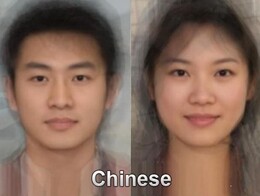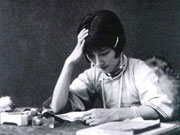 |
| Xi Jinping (1st R rear), general secretary of the Communist Party of China Central Committee, meets with a Taiwanese delegation of pro-reunification groups at the Great Hall of the People in Beijing, capital of China, Sept. 26, 2014. (Xinhua/Yao Dawei) |
BEIJING, Sept. 26 -- Xi Jinping, general secretary of the Communist Party of China (CPC) Central Committee, on Friday vowed to take "a firm and unwavering stance" on national reunification.
At the Great Hall of the People, Xi told a visiting Taiwanese delegation of pro-reunification groups that cross-Strait peaceful development would not change, despite new problems facing the Chinese mainland and Taiwan.
He called on both sides to strengthen confidence and work for the Chinese nation's rejuvenation.
SECESSION INTOLERABLE
"No secessionist act will be tolerated," Xi said. "The path of 'Taiwan independence' is unfeasible.
"We treat our Taiwan compatriots equally and without discrimination. We welcome anyone willing to promote peaceful cross-Strait development, whatever stance he once took."
Curbing secessionism is a must for ensuring the peaceful development of cross-Strait ties, he said.
Relations between the mainland and Taiwan stalled when, defeated in a civil war, the Kuomintang, led by Chiang Kai-shek, fled to Taiwan in 1949. The Kuomintang are now seen as friendly to the mainland, especially after the party took office in Taiwan in 2008.
Secessionists have harmed national sovereignty, territorial integrity and cross-Strait peace and stability. They have provoked cross-Strait confrontations, and brought woe to both sides, especially to the Taiwan compatriots, Xi said. He warned that secessionists would not give up easily and would continue to provoke cross-Strait enmity and hinder exchange and cooperation.
ONE COUNTRY, TWO SYSTEMS: THE BEST WAY
"Although the Chinese mainland and Taiwan have been separate since 1949, the fact that the two sides belong to one China has not changed, and will not be changed."
Xi said reunification will end political confrontation but it does not mean remolding territory and sovereignty. The basic guideline to solve the Taiwan question is "peaceful reunification; one country, two systems" and it is also the best way to realize national reunification.
"We will strive for peaceful reunification with utmost sincerity and effort as reunification through peaceful means best suits the overall interests of the Chinese nation, including Taiwan," Xi said.
"One country, two systems" in Taiwan will take the island's actual condition into consideration, absorb suggestions from both sides and fully consider the interests of Taiwan compatriots, he said.
"The national reunification we advocate is not merely unification in form, but more importantly, a spiritual connection between the two sides," he said.
Xi said the mainland understands the Taiwan compatriots' mentality, formed from special historical periods and a different social environment, and respects the social system and lifestyle chosen by them.
The mainland is "willing to shorten the psychological distance of the two sides with sincerity, kindness and familial affection," Xi said, adding that Taiwan compatriots should also try to understand the mentality and feelings of the 1.3-billion mainlanders, and respect their choices and aspirations.
The peaceful cross-Strait development is the right path to peaceful reunification, despite some obstacles, he said.
"We will stick to the path of peaceful cross-Strait development and policies which benefit compatriots on both sides," Xi said.
BETTER TOGETHER
It is historically inevitable that China will be reunified along its path to rejuvenation. The nation has experienced enough hardship in seeking revival. Reunification breeds strength while secession creates turbulence, he said.
The Chinese nation's revival is closely linked to the future of both sides, and Taiwan's future lies in national reunification. Taiwan cannot prosper without national prosperity, Xi said.
"We are closer to the goal of the great revival than at any other time in history. We have more confidence and ability than ever to realize that goal, which is good news and a historical opportunity for Taiwan," Xi said.
He encouraged Taiwan compatriots to grasp the opportunity and join with the mainland to realize peaceful reunification and the great revival and share the nation's dignity and glory on the global stage.
"Xi's speech has inspired us pro-reunification groups," New Alliance Association Chairman Hsu Li-nung told Xinhua after the meeting.
"Despite the approach of reunification may be altered in accordance with the changes of time and conditions, our goal of achieving the reunification never wavered," the 95-year-old chairman said.
"We will carry on our belief and commitment to strive for the reunification with greater confidence," he said.
Yok Mu-ming, chairman of the New Party said Xi's words have clearly answered some Taiwanese people's concern over reunification.
"The mainland side's good will and sincerity have also been explicitly expressed in his talks," Yok said.
"As Xi has put it, the current China is faced with unprecedented development opportunities and the two sides of the Strait should stand together, join hands and support each other to make joint efforts for the Chinese nation's dignity and glory in the world," he said.
Hsu said that to achieve peaceful reunification requires both sides of the Strait to use "great wisdom" and "great courage."
The delegation led by Hsu and Yok started a six-day visit to the mainland on Wednesday with plans to visit Beijing and Nanjing, at the invitation of the Taiwan Work Office of the CPC Central Committee.
The delegates include representatives from more than 20 groups, including the New Party, New Alliance Association, the Alliance for the Reunification of China, the Labor Party of Taiwan and the China Tide Association.
In Beijing, they will visit the Museum of the War of the Chinese People's Resistance Against Japanese Aggression and an exhibition in Beijing's Zhongguancun, known as "China's Silicon Valley" .
In Nanjing, the delegation will visit the Memorial Hall of the Victims in Nanjing Massacre by Japanese Invaders.

 Lingerie show at 2014 Miss China
Lingerie show at 2014 Miss China 'Girlfriend' of Harry Potter visits Chengdu
'Girlfriend' of Harry Potter visits Chengdu China's Pingyao Ancient Town
China's Pingyao Ancient Town Standard faces for each countries
Standard faces for each countries Being with you
Being with you Legendary Chinese women in the early 20th century
Legendary Chinese women in the early 20th century Leading director Wang Quan'an detained for 'buying sex'
Leading director Wang Quan'an detained for 'buying sex' Top 10 Chinese actresses with pretty face
Top 10 Chinese actresses with pretty face Say cheese, kittens and puppies!
Say cheese, kittens and puppies! Top 10 Chinese goddesses selected by S. Korean media
Top 10 Chinese goddesses selected by S. Korean media
Day|Week|Month